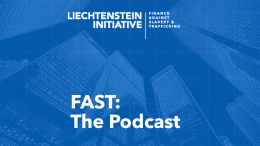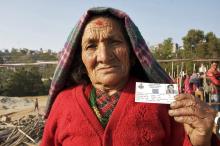As part of their efforts to strengthen global responses to forced labour and sex trafficking, Finance Against Slavery and Trafficking (FAST), an initiative hosted at the United Nations University Centre for Policy Research (UNU-CPR), and ACAMS are launching an updated training certificate for anti-financial crime professionals in the public and private sectors. The newly revised Fighting Modern Slavery and Human Trafficking certificate outlines strategies to identify, investigate, and report financial activity linked to traffickers, including through the analysis of new case studies.
According to the 2021 Global Estimates on Modern Slavery, developed by the International Labour Organization (ILO), Walk Free and the International Organization for Migration, the world witnessed a 25 percent increase in those experiencing modern slavery between 2016 and 2021, which now affects an estimated 49.6 million people worldwide. This rise can be partly attributed to increasing poverty levels and inequality due to the COVID-19 pandemic and extreme weather events leading to displacement.
Modern slavery and human trafficking are also lucrative for perpetrators: human exploitation has become the most pervasive criminal economy in the world. ILO estimates that annual profits generated from forced labour amount to $150 billion each year. Much of this illict money flows through the global financial system, and there is growing expectation that the financial sector should play a critical role in mitigation efforts.
“The financial sector cannot be expected to end modern slavery and human trafficking alone. But it is clear that these forms of exploitation will not end unless the financial sector gets involved,” argues Daniel Thelesklaf, Project Director of the FAST Initiative. He added: “This requires systemic change. The ACAMS-FAST course is a first step towards providing practitioners with the guidance they need to tangibly address modern slavery and human trafficking risks.”
Drawing on insights from industry leaders, Fighting Modern Slavery and Human Trafficking covers financial sector obligations and guidance related to anti-money laundering (AML) and countering the financing of terrorism (CFT) compliance as well as due diligence principles and survivor engagement.
Financial sector professionals taking the course will be able to better understand the drivers and illicit money flows linked to modern slavery and human trafficking, including how to identify the financial footprints of modern slavery through transactional analysis, red flags and key indicators; manage modern slavery risks through customer due diligence, inclusive AML policies, financial inclusion measures, and engagement with businesses, workers and survivors; and provide prevention, remedy and other responses through partnerships between industry, law enforcement, civil society and survivors.
“Modern slavery is a global crisis that impacts tens of millions of people who have been trafficked for labour or sex across every region of the world, but we can do something about it today by helping to identify, report, and dismantle the financial networks that make human trafficking a profitable business,” said ACAMS CEO Scott Liles. “This certificate not only raises awareness of how human traffickers are exploiting financial institutions for illicit purposes, but it also offers a clear roadmap for how compliance professionals can help put a stop to it while supporting trafficking victims on their road to recovery.”
Fighting Modern Slavery and Human Trafficking can be accessed at: Fighting Modern Slavery and Human Trafficking Certificate | ACAMS



